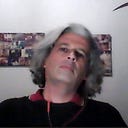Glassy Surfer’s Fall
One day or the other… there would be a fall.
Along the Car Wash operation, The Starlet knew it. Even before his new position of Minister of Justice.
Glassy Surfer, quite behind his imaculate glasses and under his bonair suits, was a boy of means. The ends were everywhere to justify all avaiable methods of reaching the top of the highest mountain around; that’s how he regarded things.
Brought up as a typical middle-class boy amongst that easily found dream of oligarch wannabe — sort of Brazilian families’ most common carving, especially beneath the wealthiests — he used to spend part of his time riding waves along Paraná’s coastline beaches, albeit full residence in the capital city of Curitiba. Like any other same stratum teenager, his life always seemed to be away from the concerns and dangers of his least privileged counterparts: lassies, parties, wave ridings, plenty of time for Law studies and a successful national bar association approval right after his undergraduation. In few words, everything that narrow-minded country’s social segment could aspire, even if the cost of such proceed could lead to topple everyone’s else aspiration.
To some extent, Glassy Surfer’s dream of corruption schemes with issued receipts had been easily perceived by The Starlet: dimwits can become Federal Prosecutors hands down.
He was supposed to take full advantage of that.
The Organism had taught The Starlet the necessary maneuvers to work on new political settings in his homeland. Even as a judge, correct and perfect moves can change a nation’s fate. The previous experience — the CC5 accounts in Banestado — led him to some savoir faire upon how to operate Car Wash in a way the former president Swarf had to cope with the people’s wrath ignited by a simple evidence conviction.
That was a wonderful technique applied in Libya when Hezbollah was acused of nothing, but Muammar al-Gaddafi instead: the terrorist onslaughts in Italy and Germany in the 1980’s had the real suspects efficiently turned down by the Department of State even with the strongest assertiveness ever of the local authorities. An inestimable outcome would be much more appealing to Washington’s hybrid war if the Libyan head-of-state could be lined up as a scapegoat — among the members of the Arabic League, for instance, he was African, what perfectly suited the national interest in not sending troops back to Syria and Lebanon.
In The Starlet’s case, his ambition of becoming a local national hero found in the evidence conviction technique the breakthrough to run over any civil and constitutional right of former president Swarf. Despite the real purpose behind this politisation of things, the mantra it’s about time those communists had been ousted if Brazil was a serious country should be in everyone’s heart and soul.
The Organism’s golden lesson: enough guts are needed if you do want to smash your opponents.
For most of the voters, Car Wash operation was the national landmark to fight the real political cancer, also known as corruption. If one could cleanse the country of that maladie, he or she would be regarded as such hero, a bravery far beyond any common sense of patriotism. That’s what happened to The Starlet when he started to rise: international awards, Lisbon’s Law Summit special guest, man of the year with his faced stamped on a New York airport lounge panel.
The Car Wash became a party among voters’ mindset, a political gangway where everything was possible to leave behind almost 13 years of a leftist governance. It’s also, and surely, clear that the vast majority of any country’s population tends to be conservative: everyone was born this way; the revolution is something to be learnt.
No one by those Southermost seas would bear in mind the possibility of having social and economic advances (that had come about in that country indeed) away from the cosmopolitan flamboyance of a proper capitalism — always propelled by a kind of reverse doctrine sustained by a dogmatic discourse hollow and empty of any better correspondent deeds. For the mad dork middle-class faction claiming itself honorable taxpayers, no other lower caste had the right of anything: the world has been unfair, and had shown no signs of stopping.
The ice-cream cone was so firmly smashed on Glassy Surfer’s forehead that he believed he could perform his crookiest stupidity ever: since the nation turned the Car Wash operation into something like car-washtism, he proposed to take part of the repatriated money from Switzerland — around 2 million dollars — to start The Car Wash Foundation as a way of making such private institution the sufficient fighter against corruption. Yokel Yolk, a nationwide famous journalist, nearly scolded the federal prosecutor in his daily evening radio show, “What?! Go out… and get a real job!”.
Typical Brazilian upper middle-class character: making money without working. Machado de Assis’ Father Against Mother opening paragraphs are an irrefutable proof of what this kind of people have been made of or how they’ve been making money up to now.
Later on, The Starlet was dimissed from the Ministry of Justice office. He knew Glassy Surfer would face the end of the Car Wash operation: half of the country had already opened eyes for the mere judicicracy controlling and operating political destinies by overruning the executive and legislative rooms.
Car Wash operation was about to be over. Everything in life comes to an end. The Starlet was not a judge any longer, and he was thinking hard about becoming a politician: maybe a necessary move to get rid of Big Dollar’s close range shooting. The black market dollar dealer was sentenced to twelve years, but under house arrest, which meant nothing to what was upcoming next: The Contractor’s Plea Bargain papers, whose unedited originals were still in possess of the Swiss federal prosecution office.
Glassy Surfer?! Maybe he would have plenty of time to be back to the waves in Paranagua or Antonina.
